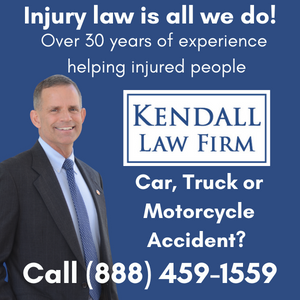The dangers of concussion after a serious brain injury in Charlottesville, Virginia
Concussions are a significant risk after a serious head injury in Charlottesville, Virginia, as even a single concussion can disrupt brain function and lead to lasting consequences. A concussion occurs when a traumatic blow causes the brain to move rapidly within the skull, potentially causing bruising, nerve damage, and chemical changes that impact cognitive abilities. Common symptoms include headaches, dizziness, blurred vision, and memory loss, which can persist long after the initial injury. For some, post-concussion syndrome develops, where symptoms last weeks, months, or even years, affecting quality of life and productivity. The danger increases if an individual sustains additional concussions, as the brain becomes more vulnerable to cumulative damage with each injury.
In severe cases, concussions can lead to serious complications such as chronic traumatic encephalopathy (CTE) or second-impact syndrome, which are rare but can result in permanent disability or even death. If a concussion is not diagnosed and managed properly, a person may unknowingly risk further injury. After an accident, seeking immediate medical care is crucial for assessing the severity of the concussion and determining a safe recovery timeline. In Charlottesville, medical professionals may recommend physical and cognitive rest, followed by a gradual return to activities to prevent reinjury. For those suffering long-term effects, a comprehensive treatment plan that includes therapy, medications, and possibly legal consultation can provide essential support in recovering and adapting to life after a concussion.
In Virginia, concussions are a prevalent injury resulting from motor-vehicle accidents, contributing to a significant portion of traumatic brain injuries (TBIs) reported annually. According to the Virginia Department of Health, motor-vehicle accidents are one of the leading causes of concussions and other TBIs in the state. These injuries often occur when a collision causes the head to jolt violently, leading to a concussion even without a direct impact. Studies show that thousands of Virginia drivers, passengers, and pedestrians experience concussions in accidents each year, with many facing long-term symptoms such as headaches, cognitive impairment, and mood changes. Due to the risks associated with unrecognized or untreated concussions, individuals involved in any motor-vehicle accident should seek prompt medical evaluation to detect and manage potential brain injuries effectively.
Terms commonly associated with concussions and their treatment include:
- Traumatic Brain Injury (TBI) – A type of brain injury caused by a sudden impact or jolt to the head.
- Post-Concussion Syndrome (PCS) – A condition where concussion symptoms persist for weeks, months, or longer after the initial injury.
- Cognitive Rest – A treatment approach that involves limiting mental activities to allow the brain time to heal.
- Second-Impact Syndrome – A rare but severe condition that can occur when a person suffers a second concussion before fully recovering from an initial one, potentially leading to rapid and fatal brain swelling.
- Chronic Traumatic Encephalopathy (CTE) – A degenerative brain disease linked to repeated head traumas, often seen in athletes and military personnel.
- Neuroimaging – Medical imaging techniques (like MRI or CT scans) used to assess brain injury severity.
- Neuropsychological Testing – Tests that measure cognitive abilities to assess the impact of a concussion on brain function.
- Vestibular Therapy – A treatment aimed at reducing balance and dizziness issues that sometimes follow a concussion.
- Return-to-Play Protocol – A step-by-step approach used to safely reintroduce athletes to sports after a concussion.
- Post-Traumatic Headache – A common concussion symptom, involving persistent headaches following head trauma.
- Cognitive Behavioral Therapy (CBT) – A form of therapy that can help manage mood changes or anxiety related to post-concussion syndrome.
- Baseline Testing – Pre-injury testing of an individual’s cognitive function, often used for comparison after a suspected concussion.
For those seeking support and resources for concussion injuries in Virginia, several agencies and organizations provide valuable information and assistance. The Brain Injury Association of Virginia (BIAV) offers educational resources, support groups, and a helpline for individuals and families affected by brain injuries, including concussions. Virginia Department of Health’s Injury and Violence Prevention Program provides guidance on preventing and managing concussions, with resources for both the general public and healthcare professionals. For veterans or active military personnel, the Virginia Department of Veterans Services offers resources and assistance with TBI-related challenges, including support for concussion injuries sustained in military or civilian settings. Additionally, the Concussion Legacy Foundation offers educational materials, recovery guidance, and advocacy for those dealing with post-concussion symptoms, helping individuals navigate the complexities of recovery.
If you've been injured in an accident, click the links below to get help from an attorney who specializes in your type of accident or injury:
- Charlottesville car crash attorney;
- Charlottesville pedestrian accident attorney;
- Charlottesville motorcycle crash lawyer;
- Charlottesville truck accident lawyer;
- Charlottesville bicycle accident attorney;
- Charlottesville Uber accident attorney;
- Charlottesville DUI accident lawyer;
- Charlottesville distracted driving accident law firm;
- Charlottesville hit-and-run accident lawyer;
- Charlottesville uninsured driver accident attorney;
- Charlottesville wrongful death claim lawyer;
- Charlottesville spinal cord injury attorney;
- Charlottesville whiplash injury law firm;
- Charlottesville brain injury attorney.
Regardless of how severe an accident is, almost everyone involved has to deal with insurance companies and claims. For crashes involving more serious injuries, or when a fatal crash occurs, a Charlottesville personal injury attorney is needed to manage the insurance claim. Go here to learn more about how a Charlottesville concussion injury lawyer helps injured victims.
Return to the Charlottesville Virginia accident information page
Most recent accident reports
Multi-Vehicle Accidents in Charlottesville: Navigating Complex Personal Injury Claims
When multiple vehicles collide on Charlottesville's busy roads like Route 250
- Page 1
- next ›


